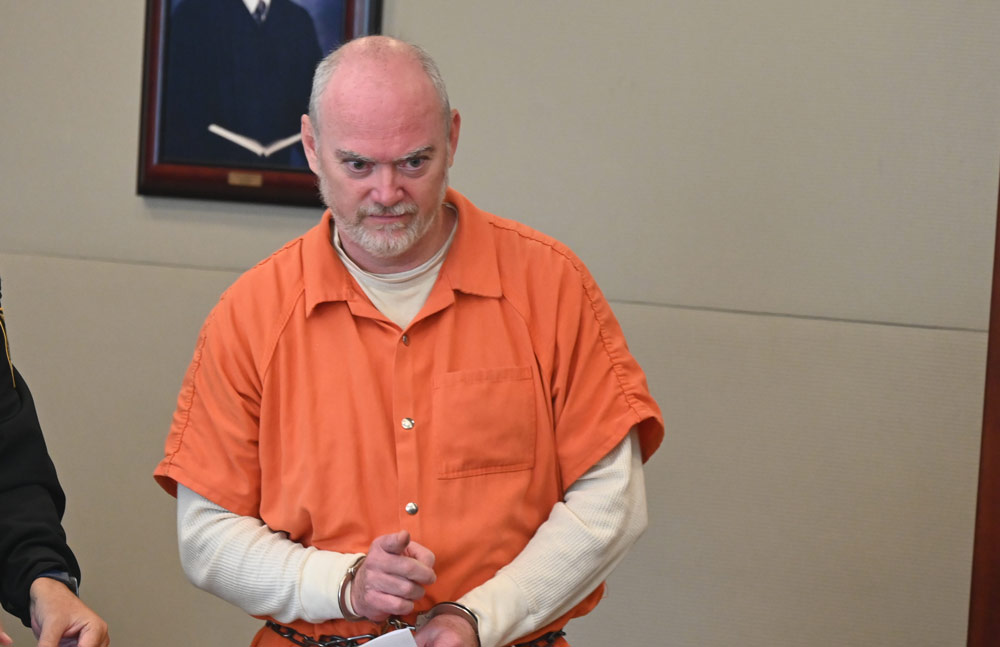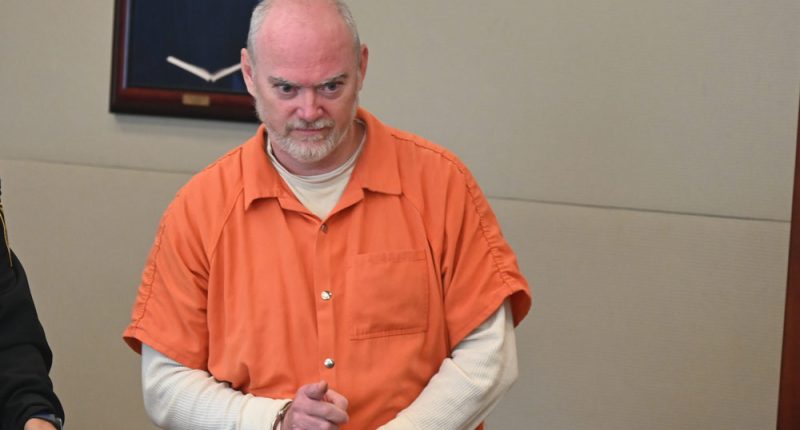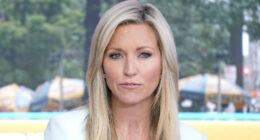
Michael Jennelle, the 53-year-old former resident of Palm Coast convicted in a March trial on seven counts of raping and molesting his granddaughter over several years, when she was between 7 and 9, was sentenced to life in prison today.
One of his two victims described it as “his lifetime in prison for the lifetime of our memories that he’s left us.”
Circuit Judge Dawn Nichols’s sentence was not a surprise. Life in prison on conviction for the crimes is mandated by the sentencing guidelines. The judge had no discretion. The brief hearing was nevertheless notable for the statements Jennelle’s stepdaughter and Jennelle’s wife spoke to the court, and his attorney’s assertion that Jennelle is maintaining his innocence.
Jennelle’s wife–they are still officially married, though divorce proceedings are in progress–became so insistent that he should apologize or show some remorse over the length of a discursive victim’s impact statement that the judge finally intervened.
“Very respectfully, he’s not going to do that,” the judge said. Jennelle sat at the defendant’s table as he had throughout the trial: without expression. “I would not waste any time expecting apologies or acknowledgement, because I don’t see that happening.” His attorney told the court that he would make no statement.
Addressing the court by zoom and crying for the 15 minutes or so she spoke, his wife criticized Jennelle for putting her daughter through the trial, and for never acknowledging what he had done. “He’s taken away my daughter’s and my granddaughter’s childhood, their innocence,” she said. “He took away their aunts and their aunts and uncles and cousins they were very fond of.”
Jennelle was tried for the abuse inflicted on the granddaughter he and his wife had adopted as their own daughter (after the child’s biological mother lost her parental rights because of neglect). But one of the witnesses at trial was his stepdaughter, now an adult, who testified that he had abused her as well. The testimony was especially damaging to Jennelle’s case because it eroded whatever hope he had of making the younger girl look like a fabulist who’d made the whole thing up.
“I feel dirty myself, married to somebody like he was,” his wife continued. “I feel the aftermath to what he did to these kids, how bitter and angry my own child is at me. I feel sorrow. But how did I miss that, not only once, but twice.”
Jennelle’s adult stepdaughter–or former stepdaughter–also addressed the court by zoom, from another state. “He’s convinced himself that he didn’t do this,” she said. “I’ve always known him to make people feel sorry for him, and I was one of those people for so long while he was experimenting with me. I hated him for making me so uncomfortable, but I had learned to live with it as a child, because I needed him. I had to pay an unimaginable price just to have a stepfather.”
She had make her peace to live past the abuse, only to then find out about the younger girl, “the sweet, caring little girl that was his granddaughter. I hated him once again,” she said. Yet she told Jennelle: “I do forgive you, and I do pray that in your lifetime that you get to spend there, that you have an encounter with the Lord, and that you account for what you’ve done to me.”
James Disinger, Jennelle’s attorney, filed a motion for retrial in March. Disinger argued that the court erred when it barred Jennelle from talking about the alleged abuse inflicted on his granddaughter by a teenage boy when she was taking a bath when she was 4.
It wasn’t exactly clear how Jennelle learned of that: he was not a witness. He was told of it. Jennelle, out of hearing of the jury, claimed that he told his wife of the alleged abuse. He claims she did not believe him. He claims he told counselors to be aware of the matter. The defense needed the jury to hear about that alleged abuse in order to undermine the credibility of the victim: the defense argued all along that the girl was lying, and had fabricated all the stories of abuse–to what end was never clear, since the girl never intimated that she had anything against her adopted father and grandfather. To the contrary.
The motion does not note that the allegation was introduced at trial minutes before Jennelle revealed it on the stand. Disinger himself had never mentioned it in his opening argument. “For all we know there’s no basis in fact,” Assistant State Attorney Melissa Clark argued to the judge, who disallowed it as hearsay. The motion also argued that the adult victim should not have been allowed to testify.
Nichols denied the motion. Disinger intends to file an appeal within days.
The only person in the gallery was Jennelle’s mother, who had also attended most of the trial. He glanced at her briefly as he was ushered out of the courtroom after bailiffs took his fingerprints for the state prison system. He will leave the Flagler County jail after spending 655 days there–time that would normally be credited to his sentence. But in a life sentence, that credit is moot, unless Jennelle prevails with his appeal.






